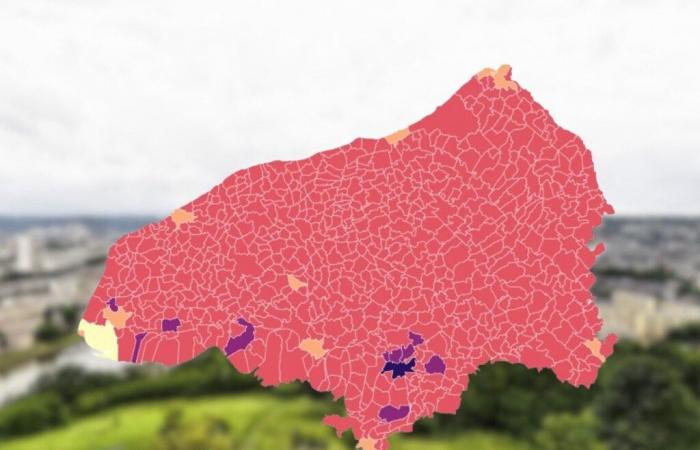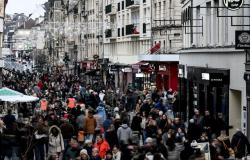Par
Yann Rivallan
Published on
Dec 30 2024 at 7:26 a.m.
See my news
Follow 76actu
This is the department the most populated in Normandy. According to figures from INSEE (National Institute of Statistics and Economic Studies), Seine-Maritime had in 2022 nearly 1 260 000 habitants.
The figures published at the end of 2024 by the statistics institute assure one thing: Seine-Maritime, like the rest of Normandy, keeps a stable number of inhabitants over the last study period, carried out between 2016 and 2022.
However, when we look at the figures in detail, we note variations between the municipalities in our department. Does yours have lost or gained inhabitants? We take stock.
Le Havre continues to fall
Seine-Maritime alone accounts for 38% of the regional population. It must be said that the two largest cities in Normandy are present there: Le Havre and Rouen.
But as our map shows, the developments between the two cities are completely opposite. In 2022, Le Havre had 166,500 inhabitants. But since 2016, their number continues to increase drop at an ever-increasing speed -650 inhabitants on average per year. This causes a loss of -3,900 inhabitants in 2022, compared to 2016.
Over the previous period, between 2011 and 2016, it was however a little more with -760 inhabitants on average per year. According to INSEE data, the surrounding municipalities, “such as Sainte-Adresse, Montivilliers, Gonfreville-l'Orcher or Harfleur”, are also, ” affected by a deficit migratory and also lose inhabitants.
Rouen and its growing outskirts
For Rouen and its immediate outskirts, the latest data is encouraging. The City of a Hundred Steeples has 116,300 inhabitants on January 1, 2022, or 6,200 more than in 2016. Over this period, the capital of Normandy experienced on average an increase of 1,040 inhabitants per year.
The population of large neighboring municipalities south of Rouen, such as Sotteville-lès-Rouen and Saint-Étienne-du-Rouvray, “respectively the sixth and seventh most populous municipalities in Normandy”, according to INSEE, has been stable over the recent period. .
The two most important municipalities on the northern and eastern plateaus of Rouen, Mont-Saint-Aignan and Bois-Guillaume, experience dynamic growth with respectively +1,240 and +940 inhabitants compared to 2016, an average of 207 and 156 inhabitants per year.
The Alabaster Coast in difficulty
Among the 189 municipalities of more than 1,000 inhabitants in Seine-Maritime, a little more than 40% of them are experiencing significant growth. INSEE notes the strong growth of “Fontenay (+ 8.4% per year, or 680 more inhabitants than in 2016) to the north of Le Havre, Rogerville (+ 4.4% per year, + 390 inhabitants) near the Pont de Normandie and Isneauville (+ 4.3% per year, + 830 inhabitants) north of Rouen.
Conversely, the greatest declines are located on the Alabaster Coast with Étretat (-2.3% per year), Le Tréport (-1.7% per year) and Sassetot-le-Mauconduit (-1.5% per year). Two other major coastal cities losenearly a thousand inhabitants compared to 2016; these are Dieppe (-1,010, or -0.6% per year) and Fécamp (-940 inhabitants and -0.8% per year).
In conclusion, the Seinomarine population only increases very slightly between 2016 and 2022. INSEE speaks of a “relative increase”, with + 0.1% on average per year, or + 740 inhabitants on average per year. It was similar during the period 2011-2016 with “+ 0.1%, and + 900 inhabitants on average per year”.
Follow the news from Rouen on our WhatsApp channel and on our TikTok account
Follow the news from Le Havre on our WhatsApp channel and on our TikTok account
Follow all the news from your favorite cities and media by subscribing to Mon Actu.






